Capsule Review: 2015 Hyundai Genesis
When it comes to luxury cars, there are two factors, often mutually exclusive, that come into play: actual excellence and perceived prestige. Very often, the latter wins out. If you want to know why, ask anyone who bought a Maserati Quattroporte. Or a BMW 528i.
From 1997-2003 the BMW 5-series was the last word in four-door sedans. If you wanted the perceived prestige, then the big V8 cars were sure to impress bench racers and badge snobs. If you wanted actual excellence, you did not pass go, did not collect 282 horsepower, and you went right for the six cylinder cars.
When I think of the quintessential 5-Series, I think of the E39 525i or 530i. Neither was particularly fast. The cabin did have sumptuous leather and slabs of wood, but by and large it was still full of old school BMW touches like displays with orange illumination and dot-matrix looking typography, a dearth of cupholders and even *gasp* hard black plastic. And yet, they were all things to all people – comfortable commuter, ersatz school bus, peerless long-distance cruiser and even an engaging backroad scalpel.
In roughly a decade, we’ve regressed. You can now spend over $70,000 on an entry level BMW that has a turbo-four engine, just like your insurance broker’s Fusion or a soccer mom’s Santa Fe. And when you drive it, you realize that the 528i is not The Ultimate Driving Machine anymore, nor is it a positional good like the E60 cars were when the end of their life-cycle coincided with the Great Financial Crisis. The F10 528i is, in many respects, a very expensive, longitudinally oriented Camry.
Not much else in the segment is thrilling, however. The Audi A6 and Cadillac CTS are both saddled with 2.0T engines unbecoming of their relative station in life. The Mercedes-Benz E350 has a proper V6, but is softer than a Buick Lacrosse. The Lexus GS and Infiniti M are non-entities.
Nobody would have ever thought that the 2015 Hyundai Genesis would be upholding the mantle of excellence in the large rear-drive segment, but then again, nobody in 2003 would have expected that Hyundai would introduce this car – badged as a Hyundai, sold through the Hyundai dealer network – either.
As with the previous Genesis, the styling is handsome but derivative. If the old car looks like a reasonable facsimile of a Lexus, the new one looks like a reasonable facsimile of an Audi, styled within the framework of today’s emissions and safety regulations. The lack of aesthetic imagination would be all the more damning if it weren’t for the homogenization of everything else on the road, in both looks and driving experience.
Well, almost everything. The two-point-oh-tee engines infesting nearly every car from the C-segment on up are very helpful with meeting all kinds of regulation: CAFE, European emissions standards, EPA fuel economy tests and world market displacement taxes.
With the Genesis, Hyundai is focusing on three major markets: the United States, Korea, and China. That means no boosted fours. Instead, you have the choice of a 3.8L V6 (311 horsepower, 293 lb-ft of torque) or a 5.0L V8 (420 horsepower, 383 lb-ft of torque). The V6 actually loses 22 horsepower, though it gains 2 lb-ft, while the V8 drops 9 horsepower and picks up 7 lb-ft. Not particularly encouraging stuff, given that curb weight is up by about 150 lbs on rear-drive models.
Any doubts about performance dissipate once you’re behind the wheel. Both cars feel much faster than their predecessors, with the 5.0 V8 providing serious forward thrust and an aggressive bellow at higher rpms that sounds like a muffled version of Chrysler’s Hemi V8. Like the old E39 540i, the V8 Genesis is at its best when cruising rapidly in a straight line, tracking perfectly straight without any hands on the wheel, cruising below 2000 rpm in near silence while eating up miles of blacktop.
If you never got a chance to drive the 3.8L V6, you wouldn’t have any qualms about the 5.0’s dynamics. The V8 car isn’t overly engaging, with relatively numb steering, a rather slow turn-in and a grudgingly competent way of taking turns . The V6 is an entirely different animal, as distinct in character as the I6 E39s were from the 540i.
With two fewer cylinders and the engine sitting a bit farther back, the V6 Genesis responds with far more enthusiasm than the 5.0 While the steering isn’t particularly big on feel, there’s a much greater level of feedback from the front tires. Turn-in is quicker, and the whole car responds to inputs in a more enthusiastic manner. The V6 isn’t as effortlessly powerful as the big 5.0 V8, but it responds with enthusiasm, and its own soundtrack is engaging and even raw at higher revs. Nobody would ever complain about the lack of power from the 3.8L engine either. V6 models will have an optional all-wheel drive system developed with Magna, but seat time in that car will have to wait for a later date.
The weak link in the powertrain is the in-house 8-speed automatic transmission, which is neither as sporting nor as refined as the 8-speed ZF gearbox that is near-ubiquitous in today’s premium car offerings. Kudos to Hyundai for making their own in-house design, but ZF has set a very high bar with what might be the best gearbox on the market. And even 8-speeds can’t help save the Genesis from less than stellar fuel economy ratings (18/29/22 mpg city/highway/combined for the V6, 16/25/19 for the AWD model and 15/23/18 for the V8).
But all of this talk of high performance driving is largely academic. The things that the Genesis needs to excel at – namely, a comfortable ride, minimal NVH and a premium interior – are all tasks at which the Genesis acquits itself. There’s a bit of noise around the wing mirrors when traveling at speed, but road and wind noise is largely isolated. The new car manages to strike the appropriate balance between ride and handling as well. Chassis tuning by Lotus (yes, that Lotus) was a big part of Hyundai’s PR push, but driving on bumpy desert access roads and poorly-maintained streets in outlying towns displayed a compliant, well-sorted ride as the primary characteristic. When pushed, the Genesis responds as well as a two-ton luxury sedan could be expected to – more than its European competition can say for themselves.
In its attempt to ape the leading European and Japanese luxury cars, the Genesis can be optioned up with all kinds of the latest cutting edge technology: a lane-keep assist system (that was overzealous and a bit of a nuisance), radar-guided cruise control, haptic feedback through the steering wheel and even a CO2 sensor (which supposedly helps keep drivers from getting too drowsy).
And you don’t need any of it. The best Genesis is the one we spent the most time with – a basic 3.8 V6, with the smaller 8″ display screen, 18″ wheels and only a couple of rows of neatly organized buttons (no iDrive-esque controller like the fully loaded Ultimate Package cars). At $38,000, it’s closer in price to a Honda Accord V6 Touring than a BMW 528i. Both the Honda and the Hyundai are better examples of actual excellence than the now neutered 5er, but in the real world, few have the courage to put character before image. What a shame.
More by Derek Kreindler
Latest Car Reviews
Read moreLatest Product Reviews
Read moreRecent Comments
- Redapple2 Love the wheels
- Redapple2 Good luck to them. They used to make great cars. 510. 240Z, Sentra SE-R. Maxima. Frontier.
- Joe65688619 Under Ghosn they went through the same short-term bottom-line thinking that GM did in the 80s/90s, and they have not recovered say, to their heyday in the 50s and 60s in terms of market share and innovation. Poor design decisions (a CVT in their front-wheel drive "4-Door Sports Car", model overlap in a poorly performing segment (they never needed the Altima AND the Maxima...what they needed was one vehicle with different drivetrain, including hybrid, to compete with the Accord/Camry, and decontenting their vehicles: My 2012 QX56 (I know, not a Nissan, but the same holds for the Armada) had power rear windows in the cargo area that could vent, a glass hatch on the back door that could be opened separate from the whole liftgate (in such a tall vehicle, kinda essential if you have it in a garage and want to load the trunk without having to open the garage door to make room for the lift gate), a nice driver's side folding armrest, and a few other quality-of-life details absent from my 2018 QX80. In a competitive market this attention to detai is can be the differentiator that sell cars. Now they are caught in the middle of the market, competing more with Hyundai and Kia and selling discounted vehicles near the same price points, but losing money on them. They invested also invested a lot in niche platforms. The Leaf was one of the first full EVs, but never really evolved. They misjudged the market - luxury EVs are selling, small budget models not so much. Variable compression engines offering little in terms of real-world power or tech, let a lot of complexity that is leading to higher failure rates. Aside from the Z and GT-R (low volume models), not much forced induction (whether your a fan or not, look at what Honda did with the CR-V and Acura RDX - same chassis, slap a turbo on it, make it nicer inside, and now you can sell it as a semi-premium brand with higher markup). That said, I do believe they retain the technical and engineering capability to do far better. About time management realized they need to make smarter investments and understand their markets better.
- Kwik_Shift_Pro4X Off-road fluff on vehicles that should not be off road needs to die.
- Kwik_Shift_Pro4X Saw this posted on social media; “Just bought a 2023 Tundra with the 14" screen. Let my son borrow it for the afternoon, he connected his phone to listen to his iTunes.The next day my insurance company raised my rates and added my son to my policy. The email said that a private company showed that my son drove the vehicle. He already had his own vehicle that he was insuring.My insurance company demanded he give all his insurance info and some private info for proof. He declined for privacy reasons and my insurance cancelled my policy.These new vehicles with their tech are on condition that we give up our privacy to enter their world. It's not worth it people.”



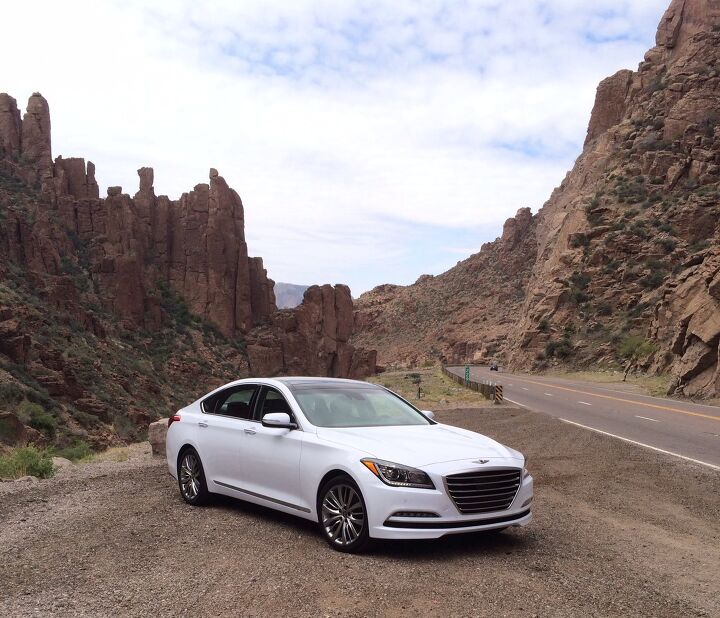



















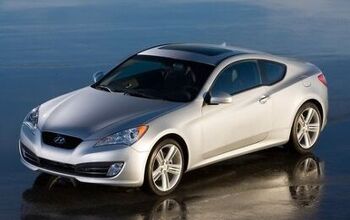
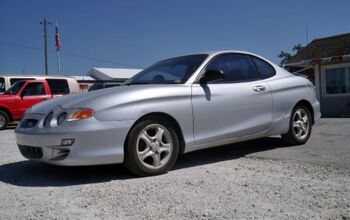

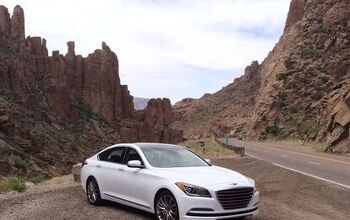
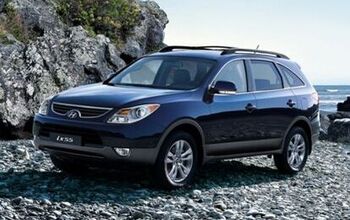
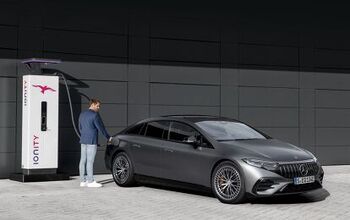
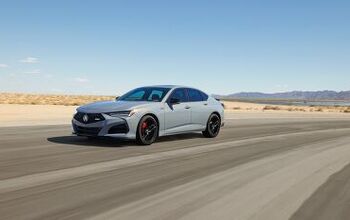








Comments
Join the conversation
This is what the 1st gen Genesis should have been. Wish this had come out sooner just bought a Lincoln which I love, but this would have been killer Three biggest complaints about the 1st gen was handling, plain looks, and terrible console from 1990. I haven't driven the car but if they teamed up with Lotus the car has to be improved. The 1st gen looked like 5th gen Sonata and had the console to match. The new grill looks Audi meets Aston Martin and the inside has the luxury and tech to compete with any of Japanese and most of the Germans. Overall on looks and stats alone this car gets my early award for the most improved. 3 years from now this will be my CPO vehicle of choice
I drove the 3.8 Genesis. The new Genesis - although UGLY and too much like a ripoff of Audi's A8 - has reached "luxury car" status. It is the South Korea equivalent of a Lexus. Thing is, although they give you options for V8's and S-class level technology packages... ...would you spend your $45,000 on a Hyundai? when it all comes down to it, perceived value is EVERYTHING. The Genesis is a better overall car than many German cars dollar-for-dollar.